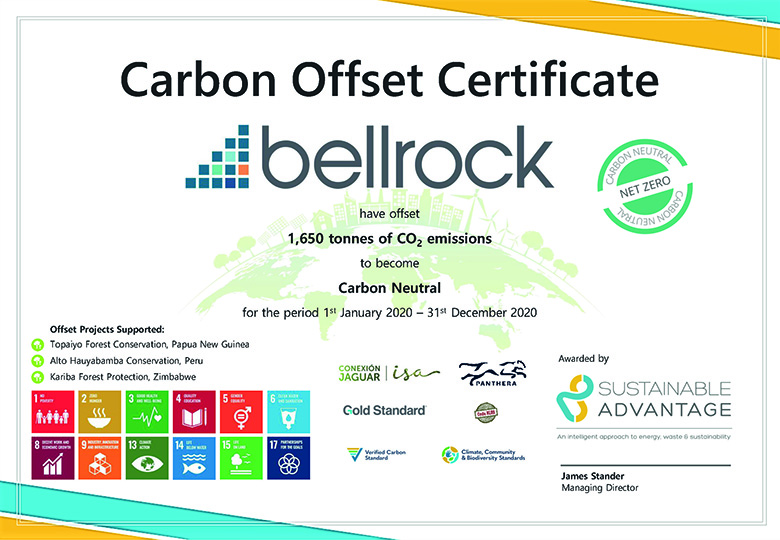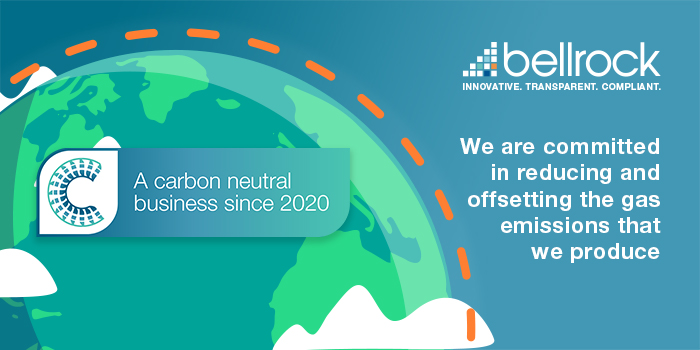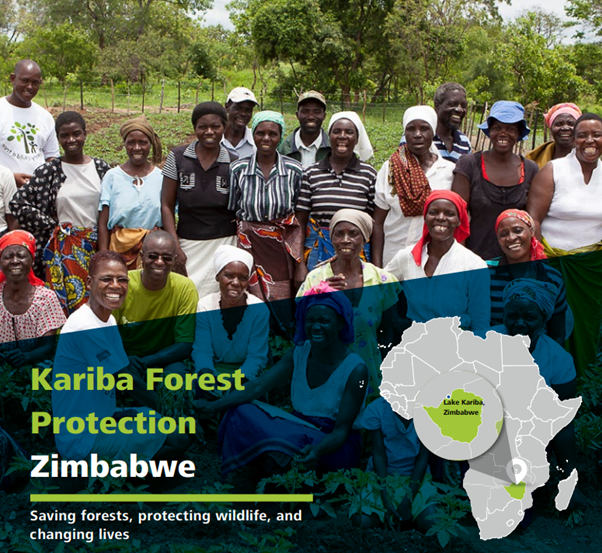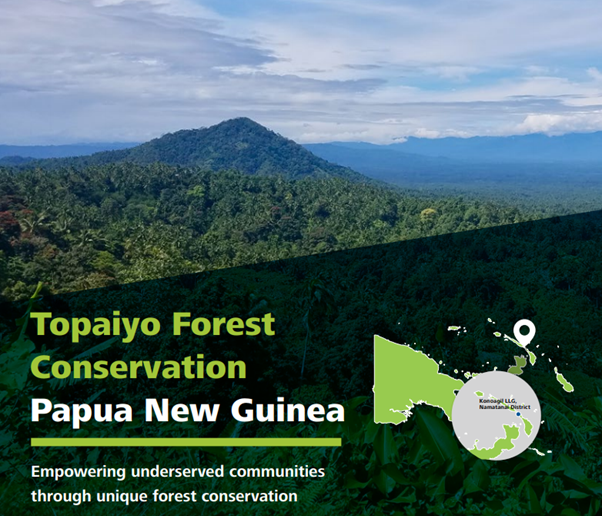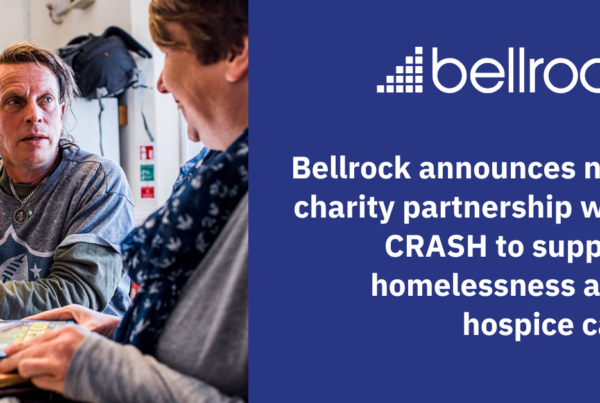Through working with Sustainable Advantage and South Poll, Bellrock have offset 1,650 tonnes of CO2 emissions to become a Carbon Neutral business.

Kariba Forest Protection, Zimbabwe
Since its launch in 2011, the Kariba project has protected nearly 785,000 hectares from deforestation and land degradation, preventing more than 3.5 million tonnes of carbon dioxide from being released into the atmosphere every year. The project continues to support regional sustainable development and the independence and wellbeing of local communities.
The Context
In recent decades, Zimbabwe has suffered from political and economic turbulence. With limited economic opportunities, desperate communities have delved deeper into the forests, clearing them for subsistence farming and fuelwood. More than a third of Zimbabwe’s majestic forests have been lost. Creating further instability for people with already precarious livelihoods.
The Project
The Kariba Project protects almost 785,000 hectares of forests and wildlife on the southern shores of Lake Kariba, near the Zimbabwe-Zambia border. One of the largest registered REDD+ projects by area, it connects four national parks and eight safari reserves, forming a giant biodiversity corridor that protects an expansive forest and numerous vulnerable and endangered species – including the African elephant, lion, hippo, lappet-faced vulture and southern ground hornbill. As well as this, the project implements numerous community-focused initiatives detailed below.
The Benefits
Kariba is a community-based project, administered by the four local Rural District Councils (RDCs) of Binga, Nyaminyami, Hurungwe and Mbire. As such, the project supports a range of activities beyond environmental protection, promoting the independence and wellbeing of these communities. Improved clinic amenities provide better healthcare, infrastructure including new roads and boreholes improve daily life, and school subsidies are offered to the poorest quartile of the population. Project activities in conservation agriculture, community gardens, beekeeping training, fire management, and ecotourism create jobs and facilitate sustainable incomes, benefiting the entire region.
Topaiyo Forest Conservation, Papua New Guinea
Working with the indigenous landowners in New Ireland, this project protects vital rainforest from deforestation. It recovers the land‘s rich biodiversity and revitalises its natural carbon stocks, in turn combating global climate change and enhancing the social and economic development of one of the poorest and most isolated areas of Papua New Guinea.
The Context
Papua New Guinea is the world’s largest exporter of tropical timber, losing approximately 1.4% of forestland each year. As a vital natural carbon sink, protecting forests is essential for mitigating global carbon emissions. It is also home to 5% of the world’s biodiversity, including 250 species of mammals, 1,500 species of trees and 750 species of birds, half of which are unique to the island. However, unsustainable logging has left this vibrant flora and fauna under serious threat.
The Project
By providing alternative livelihoods and income sources through carbon finance, this project allows the local communities to avoid deforesting their land for timber production. Instead, they can earn an income from conservation and sustainable management initiatives, alleviating the pressure on the people as well as their forest resources.
The Benefits
This project overcomes huge social and environmental challenges at a landscape level. It boosts the socioeconomic situation of some of the poorest forest communities, empowering them to work with their land rather than against it. It mitigates global carbon emissions by conserving vital carbon storage and it protects forest ecosystems and wildlife found nowhere else in the world.
Alto Huayabamba Conservation, Peru
Covering over 53,000 ha and two distinct ecosystems – the Paramos of the central cordillera and the Peruvian Yungas, a mountain forest – the project area, once heavily threatened by deforestation, now acts as a strategic connection between multiple national parks and conservation corridors for endangered animals such as the jaguar. The project has been closely designed with 40 local families to ensure a participatory approach that marries environmental protection with improving livelihoods.
The Context
The project lies within a corridor of two ecoregions of significant global importance: the tropical Andes on the eastern foothills and the Great Wild Area of the Amazon in the lowland areas of the Amazonian Andes. The main drivers of deforestation in this area include clearing forested land for pasture, industrial crops, illicit coca plantations and mining. These have been prevalent due to the lack of alternative economic opportunities in the region.
The Project
Located in the department of San Martín, in Mariscal Cáceres Province, in central-north Peru, the project spans 53,000 ha. The protected area forms part of a vast wildlife corridor, the Abiseo-Cóndor-Kutukú Corridor, that extends from Sangay National Park in Ecuador to the Cordillera Azul National Park in Perú. The project aims to reduce emissions associated with deforestation and land degradation by implementing sustainable productive activities, effective land management, environmental education and strengthening governance. The project works closely with local communities to develop and implement these joint environmental initiatives. Another main aim of the project is to maintain the water balance of the upper basin of the Huayabamba River, which supplies water for many people located further downriver.
The Benefits
The project reduces greenhouse gases in the atmosphere by preventing deforestation and protecting the natural ecosystem to increase carbon sequestration. By protecting the Alto Huayabamba area, the project not only protects endemic and threatened species but also the services that strong and healthy ecosystems provide, in this case, filtering freshwater from the Huayabamba River. The project works on a number of social and economic initiatives to benefit families living in the project area. So far 24 families have had their kitchens improved, access to state environmental education has increased and the project has offered many job opportunities.
